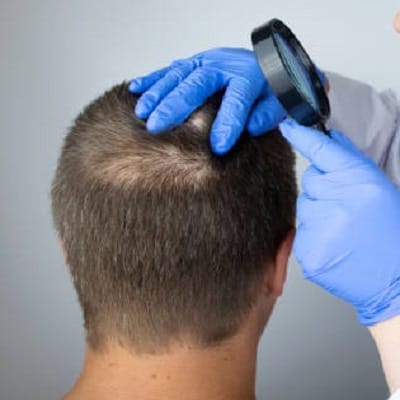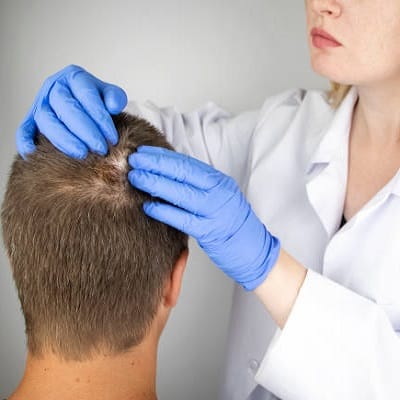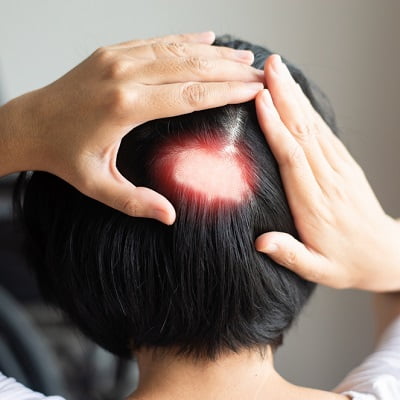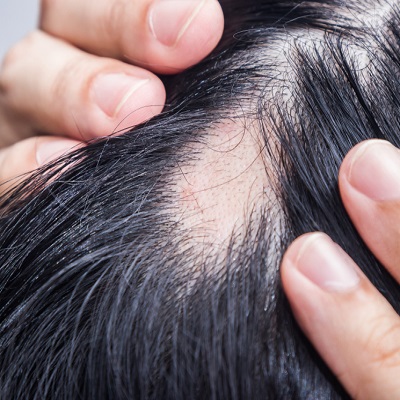The autoimmune condition alopecia areata causes hair fall-out in spots. Although, it is not fatal. However, it can cause mental disturbance for the one who suffers from it. Similarly, if we neglect it, it might spread to other parts of our body. Therefore, it results in you losing all of your hair. Moreover, the good news is that you can handle and manage this illness effectively. However, How to Stop Alopecia Areata From Spreading? Hence, this blog article will discuss attainable measures, lifestyle modifications, and therapies to stop it from spreading and promote improved hair development.
What is Alopecia Areata?
Alopecia areata results from an accidental immune system attacking hair cells—one results in hair loss. Usually beginning as spherical, tiny dots, it might expand with time.
Some typical reasons include:
- Stress is.
- Possessing certain genes.
- Not obtaining adequate nutrition.
- Based on autoimmune disorders.
- Stopping the disease from spreading depends on the proper maintenance of these elements.
How to Stop Alopecia Areata From Spreading?
One can Stop Alopecia Areata From Spreading with multiple strategies as follows;
Seek Early Medical Intervention
If you notice unusual hair loss, you should consult a doctor immediately. Early discovery of the issue will help prevent it from getting worse.
Common treatments physicians administer include lower edema and halting the immune system from responding near hair follicles using corticosteroid injections. Further, topical immunotherapy alters the immune response to enable hair growth once again.
Manage Stress
Often brought on by stress is alopecia areata. Eliminating stress will greatly slow down its spread. Further, one may benefit from mindfulness or meditation. Also, go about regular activities that inspire movement. Similarly, keep a consistent sleeping schedule.
Maintain a Nutrient-Rich Diet
Insufficient nutrition may compromise hair cells and aggravate hair loss. Good eating may help your hair remain healthy and even delay the development of alopecia areata.
Essential Foods for Hair Maintenance include excellent sources of iron, like beans, lean meats, and spinach. Furthermore, foods and fatty fish treated with vitamin D will help hair follicles function better. Similarly, zinc aids in hair growth through prawns, nuts, and seeds. In addition, one must add nutritious foods like eggs, and nuts. Biotin strengthens hair.
Avoid Hair Damage
Strong chemicals, heat treatments, and rugged styling may aggravate hair loss. Treat your hair gently to prevent the strands from becoming more strained. Therefore, avoid sulfate soaps. Similarly, do not wear your hair in tight ponytails or bands. Furthermore, they use hot curling tools very seldom.
Consume Adequate Water
The health of your hair and skin depends on their being kept well-hydrated from follicles. Aim to drink eight glasses of water daily.
Limit Environmental Triggers
Keep your skin free from the sun and harsh weather to look better. It may enable one to wear scarves or caps.
Monitor Your Hormonal Health
Changing hormones could aggravate hair loss. Regular visits and illness management including PCOS and thyroid issues should be taken under consideration.
Advance Treatments to Deal Alopecia Areata:
Advanced medications offer promise as alternatives to ineffective traditional therapies for alopecia areata include antibiotics or skin applications. These decisions address the underlying cause of the issue and enable those suffering with excessive or obstinate hair loss relief to have hair grow back.
Platelet-Rich Plasma (PRP)
A small portion of your blood is extracted and processed to concentrate the platelets, and subsequently, the plasma is injected directly into the skull as part of PRP therapy. Platelet growth elements help hair follicles function better, increase blood flow, and assist in hair growth backtracking.
Simply said, PRP wakes up dormant hair cells and accelerates the natural healing process of the scalp.
Low-level laser treatment (LLLT)
It activates hair cells without damaging them with light radiation. It reduces edema and increases blood flow to the scalp, therefore promoting healthy scalp conditions generally and helping hair to develop.
JAK Inhibitors
Medications known as JAK inhibitors that halt specific immune mechanisms leading to alopecia areata work best for severe or widespread conditions. They may be taken orally or used topically.
These medications enable the immune system to recover and re-grow hair by stopping it from attacking hair cells.
Final Verdicts:
Alopecia areata does not have to rule your life. Moreover, you can deal with it effectively. Therefore, early therapy, lifestyle modification, and handling causes can help your hair grow back and prevent it from spreading. However, patience is usually crucial because outcomes may show up after a period. Hence, take the action immediately to get the proper solution of this condition.
See a specialist at SKN Cosmetics Islamabad and get customized and effective treatment for your alopecia areata symptoms. Moreover, prompt and on-time action can help you get the desired results. Therefore, act now to make significant improvements and handle your matter.





